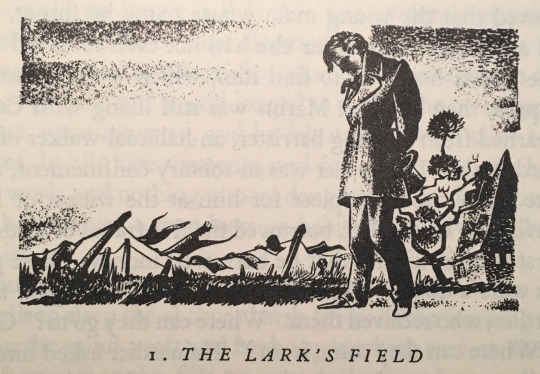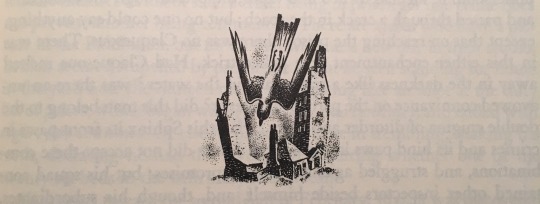#i have some amends to make re Marius (tho hes still an utter buffoon)
Text
Brick Club 4.2.1
I started this chapter freshly annoyed with Marius but very quickly found myself realizing how blinded I’ve been by the authorial lens I’ve been peering through. I’m more annoyed now that it took me this long to strip away Hugo’s Romantic-colored glasses in regard to Marius. It was less what new information I gained and more I found the right combination of story elements, mixing the secret understanding-Marius-Pontmercy sauce.

The Gorbeau raid should have clarified some broader truths for Marius, even if it left him with a more numerous yet narrower set of questions than he had when he started. The thing is, he was happy with his nebulous fantasy of what could be, but when actually faced with real answers to real questions, he shuts down entirely. I was ready and able to castigate Marius for falling short of self-awareness yet again, but then Hugo kept talking.
“He had discontinued his work, and nothing is more dangerous than discontinued labour; it is habit lost. A habit easy to abandon, difficult to resume.” Hello, alienation. Actual physical distance from alienating labor makes you realize how mentally and emotionally distant you had already been from it. You were only doing it because you needed the money, the capitalist demands of productivity were killing any outside satisfaction you may have gleaned from it. Hugo then claims: “Thought is the labor of the intellect, reverie its pleasure. To replace thought by reverie is to confound poison with nourishment” and Marius is falling into such a trap. Ok, I’ll bite, I’ve criticized him for this very thing many times (and pointed out this is likely a byproduct of profound alienation and isolation). Hugo appears to agree, identifying reverie and labor as having an explicitly inverse correlation. But suddenly there’s a new flavor here, and it’s not working. Hugo not only claims correlation, but jumps to extrapolate causation: “Woe to the brain-worker who allows himself to fall entirely from thought into reverie!” An excess of reverie must cause a lack of labor (which can only result in suicide or crime and, oh, I’ll get to that). Except…no, that isn’t how systems work. Individuals don’t allow themselves to be alienated, it’s an inherent aspect of the society they exist in. Hugo has picked out a thread and declared himself done, but I intend to sit here and pull it. Let’s talk about capitalism and mental illness.
This is going to be a Long Post(tm) as I try to construct an appropriate lens to view this chapter through. Light content warning for discussion of suicide (mostly in an academic and historic context) and talk of mental illness.
His attempted example of Escousse and Lebras becomes its own counterexample with little effort. Victor Escousse and Auguste Lebras were poets and playwrights who committed suicide together after their play, Raymond, was a failure, declared guilty of an “excess of reverie” by Hugo. Honoré de Balzac said, “Escousse and Lebras have died, like many young people, from the disenchantment of their time. They died because they found nothing to do in this world, in the midst of this society, as the last forty years have done to us.” Well, that’s kind of right but for all the wrong reasons. They didn’t have “nothing to do,” both writers were actively doing labor. They were barely twenty years old and had produced multiple works each. They both had invested their sense of self so deeply in their labor, that’s its failure became a failure of their very beings. This is doubly crushing in a (capitalist) system that primarily values you for your labor! I’d be fucking disenchanted. The problem is both Hugo and Balzac have the entirely wrong idea of what is the cause and what is the effect. Reverie and disenchantment aren’t affecting people’s labor, the system of labor is so alienating and exploitative that people are turning to suicide or crime as their only answer to society.
I emphasize the connection to labor because Hugo does so, but there’s a host of other social influences we could consider in interpreting this vague notion of reverie. Emilie Durkheim’s Suicide categorizes the motivations for suicide by degrees of social integration and moral regulation, and if I wanted to lean entirely into that, I could say revolutionary France is a petri dish of anomie, a societal state of low moral regulation, meaning society lacks a foundational set of norms, often due to rapid change on a societal level, good or bad. Anomic suicides are characterized by a sense of alienation and a lack of purpose and are common in the wake of significant social upheaval.
So...I said I was talking about mental illness and..I haven’t really. I mean, I have but I’ve mostly talked around it, alienation and anomie and bullshit. I’ve rewritten this section multiple times now, trying to find a way to ground this to Marius and to me, honestly. There’s a balance that needs to be struck between the social and the individual and mileage will vary. Hugo treats reverie like an actual drug, an external indulgence that you either partake in or not. It’s characterized too much as an individual weakness of character. Yet at the same time, Durkheim’s interpretation is too reliant on broader social explanations. Hugo is pretty dismissive of class, but we know now that mental illness disproportionately affects the working class. But it’s also a product of individual brain chemistry, my seratonin whatever doesn’t give a shit about about societal moral regulation. Ugh, I just don’t know what the right balance is and it’s impossible to filter that past my own experiences with mental illness. Maybe I’ve successfully presented some contextual space to move around in.
With all of this in mind, let’s look back to Marius without the easy excuses of voluntary reverie or even labor clouding our perspective. Marius is way ahead of us, having sampled and discarded meaningless labor entirely. “He had lost the capability of work, and of moving firmly toward a definite end, but he was more clear-sighted and correct than ever…His judgement, almost detached from hope, soared and floated aloft.” Marius isn’t high on the drug of reverie, he’s dissociating. The Romantic glorification of ecstasy and melancholy—“The soul which loves and which suffers is in the sublime state”—is disguising the fact that Marius is profoundly depressed (likely has been for awhile) and, having lost his few coping mechanisms, is spiraling. His father was wrong about Thenardier, Ursula The Lark may not be the innocent girl he thought she was, the facts of his carefully balanced world of possibilities have been overturned. If I were inhabiting Durkheim, I would peg Marius as the poster child of anomic suicide. The possibilities before him are so unbounded that they’re overwhelming and he’s lost every set of foundational values he’s ever held on to. Even the value of transcending values has turned on him, his decision to stay neutral in the Gorbeau raid weighing on him just as heavily as the prospect of having chosen a side.
The clearest indication of this is the very end of the chapter. Grasping for anything to hold on to, Marius comes across the Field of the Lark and, through the desperate logic of a depressed mind, decides this is Ursula’s field and substitutes his daily walks in the Luxembourg Garden with visits to this obscure field. “The whole mind condenses abruptly around one idea, and ceases to be capable of any other perception.” In this state, he clings to the unfixed ideal of The Lark even more than before, needing a touchstone that can neither be confirmed nor denied. Schrodinger’s coping mechanism.

#brickclub#les mis#4.2.1#ive done the damn thing i try never to do#i have some amends to make re Marius (tho hes still an utter buffoon)#this was also a really hard post to put together#the only way i know how to talk about mental illness is to avoid talking about mental illness lmao!#the thing is the way marius experiences depression is sooo different from how i do#and thats been a significant block as well#im sorry that my long posts are just less and less coherent as i continue to make them#also for this one in particular feel free to be like 'hey centrifuge this is total bullshit'#bc im all over the place here#and this stuff can get personal i know
9 notes
·
View notes